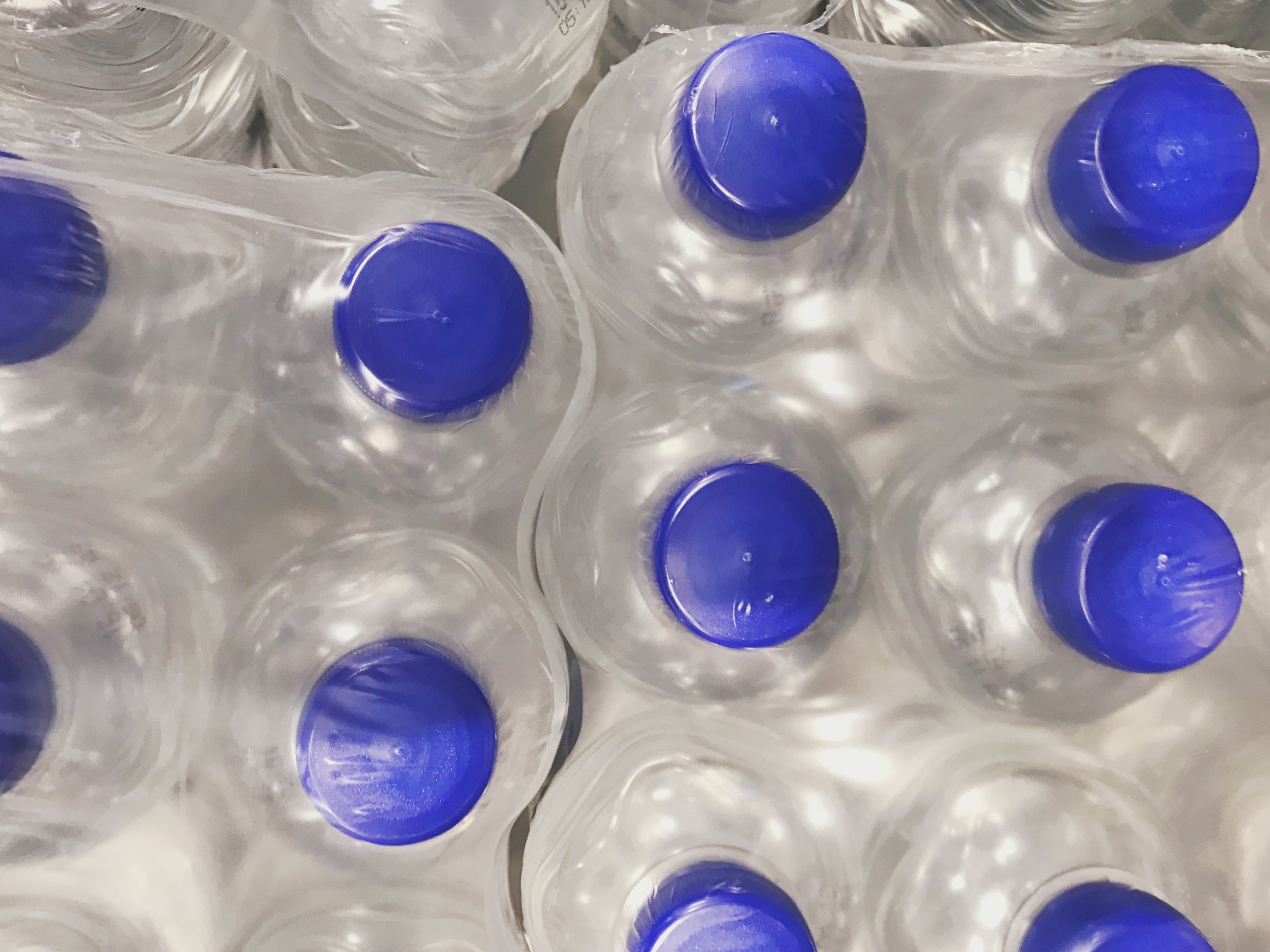Plastic bottles
Chemicals
Not only do plastic bottles have a negative impact on our environment, they also contain several chemicals that may leach into your drink. For example, plastic bottles with code “7” contain Bisphenol A, or BPA, a chemical that is linked to a number of potential complications for pregnant women and the fetus. It can lead to chromosomal errors in the developing fetus, causing spontaneous miscarriages and genetic damage. BPA is used in the production of a hard and transparent form of polycarbonate plastic used to create food and drink containers and other consumer goods. It is also used to line the inside of cans, and for the production of plastic tableware and cutlery, popular for babies and toddlers. Three billion kilograms of BPA is produced annually and because it is used in so many products, our exposure to BPA is such that over 90 % of us excrete BPA metabolites in our urine at any given time. BPA is not listed on food or drink labels so millions of people have no way of knowing their daily exposure. BPA leaches from the packaging and into the products, especially when they are scratched or heated during cooking and in the dishwasher (or when it is heated by sunlight). Not something you want your kids, or you, to ingest.
The danger in BPA lies in its ability to mimic the hormone oestrogen and to bind to the oestrogen receptors in a cell. As such, studies have found that it can affect the development of mammary glands and it has been linked to breast cancer and prostate cancer, heart disease, obesity and diabetes. Although the European Food Safety Authority has conducted an assessment in which they acknowledge that uncertainties around the potential health effect of BPA on the mammary gland, reproductive, metabolic, neurobehavioural and immune systems, they concluded that BPA poses "no risk" to human health. A conclusion conflicting with the outcomes of many scientific researches that show that even a low daily dose can have adverse effects.
Another type of chemical that is very often used in plastic bottles is PET (labeled with #1) or polyethylene terephthalate which is a type of polyester. It is widely used in the clothing industry (it is wrinkle-free) and is also used for insulation (pillows, upholstery), carpet and mouldings. Many food and drink packages are also made with PET for its strong ability to create a liquid and gas barrier. PET may leach antimony trioxide that is considered a possible carcinogen. The potential for release increases with time and warm temperatures (which is why this kind of plastic should not be reused).
With these plastics it is not yet known what the effects will be on us in the long term, but I think it is better to be safe than sorry (especially with kids who are so much smaller) and there are so many options out there that are better for our kids and our planet, so why not change?
Alternatives
The bottles from Klean Kanteen are one of my favorites. They sell stainless steel bottles in different sizes with different lids. Their bottles keep drinks hot for 20 hours and iced for 50 hours. The interior is electropolished (safe and non-toxic) and the caps are made from polypropylene (pp#5, no BPA or toxins), silicone or bamboo and stainless steel. The bottles can be washed in the dishwasher but it is better to clean them by hand (the paint on the bottle will fade away in the dishwasher). They also sell sippy cups and baby bottles. Klean Kanteen aims to reduce single-use habits by inspiring people to bring their own.
I also love the ones from S´well, sleek, stainless steel bottles with beautiful designs. S´well works together with UNICEF and many other charities.
Prefer glass bottles? Try the ones from Lifefactory, made from glass with a silicone sleeve for durability and superior grip and a polypropylene cap. And they are dishwasher safe. Lifefactory also sells baby bottles and sippy cups.
Or these beauties at Mybkr. Also made from glass, a silicone sleeve and a cap made of BPA-free, phthalate-free plastic with silicone seal. Also dishwasher safe. They are so pretty, which mom does not want to be seen with one of these?
Like minimalistic design? Then the bottles at Equa could be something for you. Gorgeous bottles made of glass and silicone.
I noticed that these bottles have silicone elements and was wondering myself if it is a safe component, so I looked it up and it is not toxic to aquatic or soil organisms. It is not biodegradable, but it is quite durable and can be recycled after a lifetime of use (The Soft Landing).
Recently, I have discovered there are ceramic travel mugs, like the ones at Live Vessel. Beautifully designed, handmade of ceramic with a wooden lid, they instantly purify your water. I haven´t tried them yet, but if anyone has. Please share!
Sources
